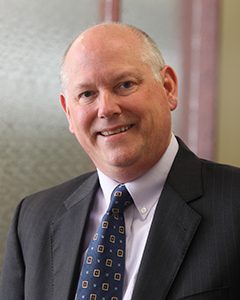Fiduciary Issues in the COVID Era

It is no secret that these are tough – and confusing – times for most people. Officials inside and outside of government are issuing sometimes contradictory messaging; the economic effects of the pandemic are one of our great unknowns; and data on when – or even if – the crisis will pass is open to debate.
In the midst of all this, retirement plan fiduciary responsibilities haven’t gone away. The $2.2 trillion Coronavirus Aid, Relief and Economic Security (CARES) Act has made some important alterations to what an Employee Retirement Income Security Act of 1974 (ERISA) 3(16) fiduciary can and cannot do.
When it comes to 401(k) plans, CARES waives the 10% early distribution penalty on coronavirus-related distributions of up to $100,000; increases plan loan limits to $100,000 or 100% of a participant’s vested account balance for coronavirus-related loans; extends repayment periods up to one year for both new and existing loans; and allows COVID-affected individuals to “self-certify” such requests.
In addition, distribution and loan provisions are optional and may be used immediately as long as a plan amendment is adopted before the end of the 2022 plan year. CARES also temporarily waives Required Minimum Distributions (RMDs) for calendar year 2020, allowing individuals to keep those funds in their retirement plans.
These are obviously a lot of significant changes to keep track of and enact, which makes hiring of an independent 3(16) fiduciary so attractive. A 3(16) fiduciary can help ensure that each plan is administered in compliance with the new rules, and that CARES Act features that can help the plan’s participants get through this difficult time are all properly instituted.
A 3(16) fiduciary can also help ensure that all required notices are distributed — failure to do so can result in plan errors, fines and penalties — and make sure that all such notices are distributed on time and on schedule (electronically or by mail) to all participants. This can be particularly challenging at a time when so many people are working offsite (or not at all).
Furthermore, CARES allows plans to make coronavirus-related distributions to eligible participants. A 3(16) fiduciary can approve distribution eligibility; help manage CARES-related expanded loan opportunities; and oversee newly extended repayment periods of up to one year for both new and existing loans.
And when it comes to RMDs, a 3(16) fiduciary can determine who is eligible, and provide them with notice of the relevant changes.
On the investment side, plan fiduciaries must continue to follow the rules established by ERISA and the plan – an obvious point, perhaps, but one that can be overlooked at such an extraordinary time as this. If your plan has an investment policy statement, make sure any investment decisions you make align with it.
Another potential pitfall is target dates funds (TDFs). As we saw after the 2008 recession, TDFs can lose value; even though the U.S. Department of Labor says you can use a TDF as a default investment option does not mean that it is considered a fiduciary “safe harbor.” Fiduciaries must still follow ERISA’s “prudent person” rule, which essentially says they must use a prudent process in selecting and monitoring investment funds. Again, a fiduciary can help with this, as well as with developing a process to use when comparing the number of TDF options available.
We further recommend a 3(16) fiduciary to undertake such “housekeeping” tasks as keeping clear records of all plan-related decisions and how they were finalized. Relaxing standards and/or failing to clearly communicate between parties is never a good idea. While it may be easy to overlook such tasks in our current environment, rest assured that the Department of Labor, the Internal Revenue Service, and others will not.
As we await the federal government’s next moves – the latest stimulus package does not appear to include anything directly retirement-related – we must all remain vigilant about managing our plans and their participants. Having a professional 3(16) fiduciary onboard can help immeasurably.
About the Author
